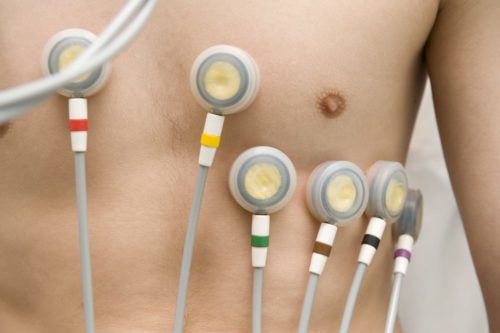Are you feeling stressed about your upcoming stress test? While it is normal to be somewhat apprehensive about medical tests, learning everything you can about the procedure can do much to reduce that fear. At Windward Vein, Heart & Medispa, we want you to feel comfortable when you come in for procedures with us, so we have all the information you need to know about the EKG stress test to prepare for your procedure.
What is an EKG Stress Test?
The EKG stress test is a basic test that is used to determine how well your heart is working. The EKG or electrocardiogram uses electrodes that are placed on the chest to monitor the electrical activity of the heart. While the EKG is monitoring your heart activity, you will exercise (usually by walking on a treadmill) to determine how well your heart handles the “stress” of the physical activity.
Why is it Recommended?
There are a number of reasons why your physician might recommend an EKG stress test for you:
- You are experiencing possible symptoms of heart disease, such as chest pain
- Current symptoms are growing worse
- You have had previous treatment like angioplasty or heart bypass surgery
- You have had a heart attack in the past You are at high risk for heart disease and you are starting an exercise program
- You have an irregular heartbeat and you want to know if exercise will affect it
The test may provide insight into whether other cardiac tests might be needed to obtain an accurate diagnosis and treatment recommendations.
What is it Like?
When you come in for your stress test, you should wear shoes and clothing that will be comfortable during exercise. The electrodes will be placed on your chest and a blood pressure cuff will be put on your arm to keep track of your blood pressure during the test. You will then begin exercising, which may involve walking on a treadmill or riding a stationary bicycle.
During the test, the intensity of the exercise will likely increase. You may stop the test at any time if you experience shortness of breath, chest pain, an irregular heartbeat or dizziness. However, the longer you are able to exercise, the more information your physician will receive from the test.
What Information does it Provide?
If the results of your stress test are normal, that means you are able to exercise as long as most people of your age and gender. If your results are abnormal, your physician will look at how the results were abnormal to determine whether you require additional testing. This might include an irregular heartbeat or changes to your heart activity during the test.
What Happens after the Test?
If your results are abnormal, it could mean you have a blockage in one or more of the arteries leading to the heart, a condition known as coronary artery disease. If this is the case, your physician may recommend other tests, such as cardiac catheterization or a stress echocardiogram to get a better picture of what might be happening. These tests allow your physician to see inside your heart and arteries to pinpoint the location of a blockage or determine whether another condition is present.
The EKG stress test is relatively painless and may take anywhere from 30 minutes to two hours to complete. At Windward Vein, Heart & Medispa, we strive to ensure our patients are comfortable and well cared for throughout their test and afterward. To learn more about the stress test, contact our office today at 808-797-2687.

